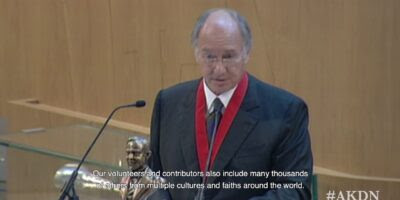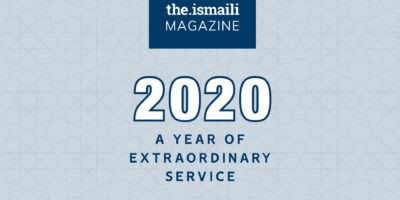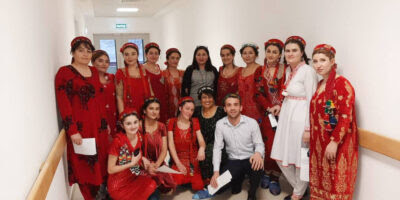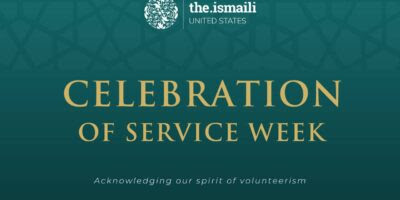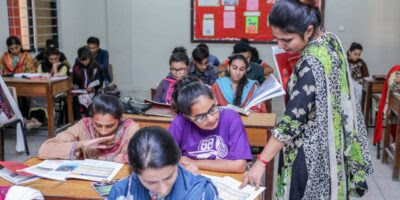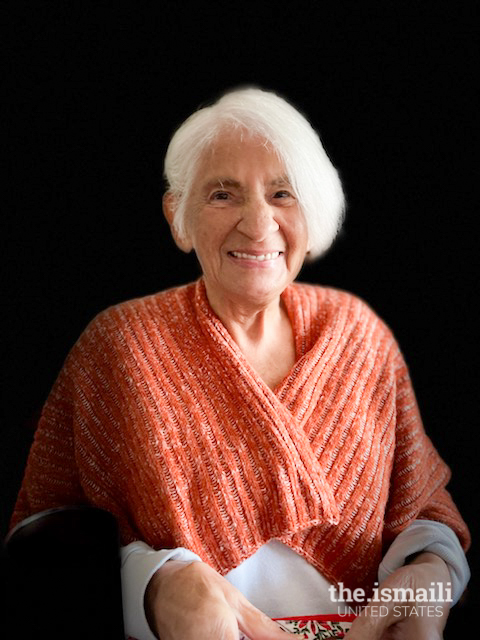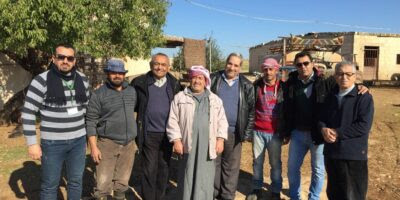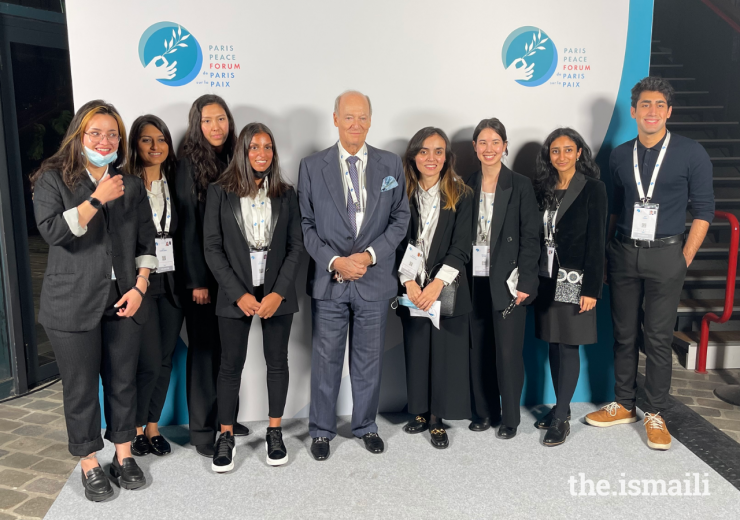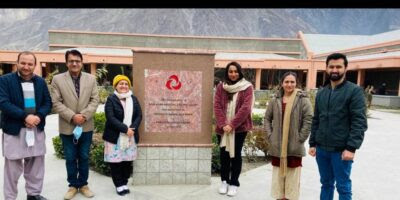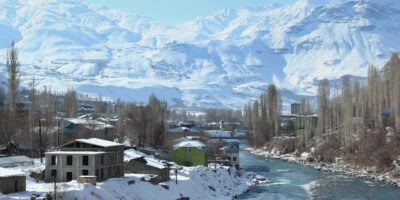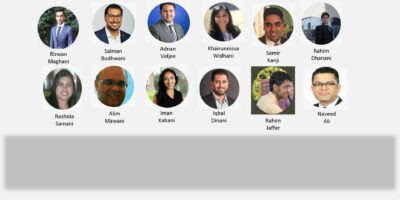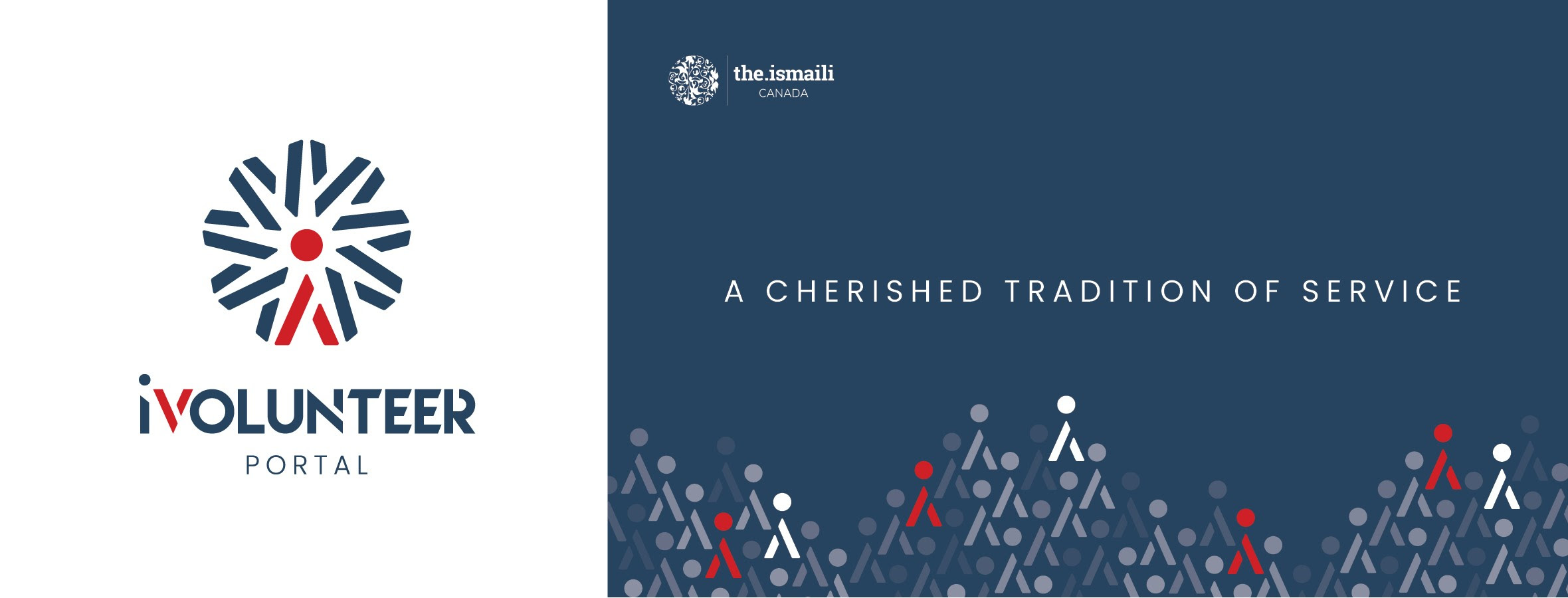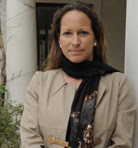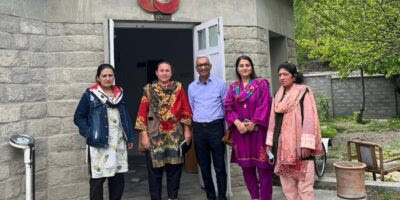
The ABC programme provides much-needed skills enhancement in a socially fragile environment.
When done right, skills development can improve productivity and reduce unemployment, thereby helping to enhance quality of life. In Afghanistan, volunteers from Canada and elsewhere are helping the Jamat to acquire the right skills to thrive in a changing environment.
The Afghanistan, Badakhshan, Canada (ABC) programme, designed to assist the Afghan Jamat to expand their horizons, extends also to the healthcare field. The language programme has been introduced at the French Medical Institute for Children in Kabul (managed by the Aga Khan University), where 50 medical professionals are improving their English reading, writing, and conversation skills.
Meanwhile, other hospitals in the country have asked for assistance in medical training and ongoing education. With the help of the Aga Khan Health Services, medical skills training is being offered at the Aga Khan Hospitals in Bamiyan and Faizabad, in areas such as ICU, paediatrics, internal medicine, radiology, surgery, obstetrics and gynaecology, and anaesthesia.
Over 50 volunteer professionals are involved in skills-enhancement and 1250 hours of training have been provided thus far.
“The virtual sessions from Canada are very useful for all the medical staff of Bamyan Hospital in building the skills and knowledge needed to improve the care and treatment of patients. The support of the Canada team is highly appreciated,” said Ghulam Ali Mahdawi, Nursing Manager in Bamiyan.
“It has inspired [our participants], instilling self-confidence and offering hope for the future. So many of them tell us that they can communicate better with colleagues from around the world, while upgrading their professional skills at the same time,” said Dr Karim Samji, of the Aga Khan Health Board in Canada.
Medical care skills enhancement is offered via telephone and email, alongside sharing of online medical education resources and complimentary registration for Canadian national conferences. The objective is transfer knowledge and build local capacity.
Another area of concern is the mental health of the Jamat. In response, a strategy is being developed to assist those most affected by trauma, emotional distress, and other outcomes of the recent turbulence in Afghanistan.
Challenges faced in delivering the program include a lack of volunteer professionals based in Afghanistan, pandemic-related limitations, security concerns, and limited resources. To overcome this, the team is actively pursuing an extension of the programme, with building of capacity, telehealth, and certification of courses delivered.
The impact of the programme has been significant, as Hamayon Rasoli, eHealth program coordinator in Afghanistan, attests: “The continuing medical education sessions have been extremely useful.”
“We are so lucky to partner with a great team in Afghanistan and make lifelong friendships, while at the same time, educating and building capacity,” said Dr Ally Prebtani, of the Aga Khan Health Board in Canada, who manages the programme. “Our team in Canada as well those of other western countries have all been remarkably selfless, highly competent, and deeply united - their work will never be forgotten,” he added. “We will continue our work as there is still much more to do and learn.”
Educator Nadia Gilani looks forward to class every week, with its perfect attendance. “I love what I do, and I’m eternally grateful for this opportunity,” she said. “I feel very humbled and blessed to be able to put a smile on our students’ faces every week and play a small part in improving the quality of their lives, personally and professionally.”
Improving local leadership skills
The Ismaili Council for Afghanistan, established just two decades ago, has had to confront many challenges in this short period. It has arranged visits to all regions, including many remote villages, to ascertain the Jamat’s condition, and to provide assistance through collaboration with AKDN agencies and other National Councils.
This relatively young institution has also, with volunteer assistance, become increasingly professional and effective. ABC virtual sessions cover leadership development to enable local Jamati institutions to be more effective and efficient in serving the Jamat. This is accomplished via a series of topics such as Effective Communication and Conflict Prevention, Objectives and Goal-setting, Volunteer Management, Programme Execution and Impact Assessment, The Use of Data in Decision-making, Negotiation Skills; and Inspiring Others.
Each of the modules is delivered by subject matter experts from Canada on a weekly basis, via video. Participants are asked to maintain a journal to assess what they enjoyed and learned in the modules, and how this could positively impact their professional lives.
Included on the teacher roster are Mohammed Manji, former President of the Council for Canada, and Sheherazade Hirji, former AKDN Representative to Afghanistan, as well as experts from the Conciliation and Arbitration Board and local Canadian Councils.
Sheherazade explained that her involvement was a truly enriching one.
“The experience confirmed that as challenging as times are in Afghanistan, the Jamati leadership remains committed to Mawlana Hazar Imam’s vision of creating a country of opportunity for the long term,” she said. “It was humbling to see the commitment of the participants to build and strengthen their capacity in order to build a stable, secure, and prosperous future for the Jamat and their neighbours in Afghanistan. The success of this programme has also been extended to other countries.”
“The Leadership Development Program was extremely useful for me,” said participant Gul Begum Ahmadi. “I learned more about the Ismaili constitution and some relevant skills which assist me to be a good leader in the future in order to serve my Jamat.”
Hafizullah Adel remarked that he has learned much from the modules, and has “…seen great improvements in my personal life, professional life, and voluntary responsibilities. And I hope in the future, I will be able to transfer my knowledge to others.”
Vocational Training
The International Labour Organization has estimated that by mid-2022, almost a million Afghans who previously worked in the government, with NGOs, in the private sector, or in the military or police, will have lost their jobs since August 2021. The unemployment situation has affected all, including the Jamat, and while the local Council has done much to alleviate the suffering, longer term solutions are being planned to improve financial security.
Besides the existing and ongoing programmes, the Aga Khan Economic and Planning Board for Afghanistan is collaborating with its counterpart in Canada to launch an internship initiative under the ABC project. This will be jointly implemented with the AKDN and the Ismaili Council for Afghanistan, with direct support from the Canadian team. The initiative will cover Kabul, Baghlan, Badakhshan and Takhar provinces, where many AKDN interventions take place.
Internships for 259 individuals, 40 per cent of whom will be female, will be offered via AKDN institutions as well as with Afghan National, Local, Regional and Provincial Ismaili Council committees.
Overall, such international volunteer initiatives provide much-needed skills enhancement in a socially fragile environment. At the same time, they offer the local community brighter future prospects and greater financial security.
https://the.ismaili/global/news/communi ... fghanistan